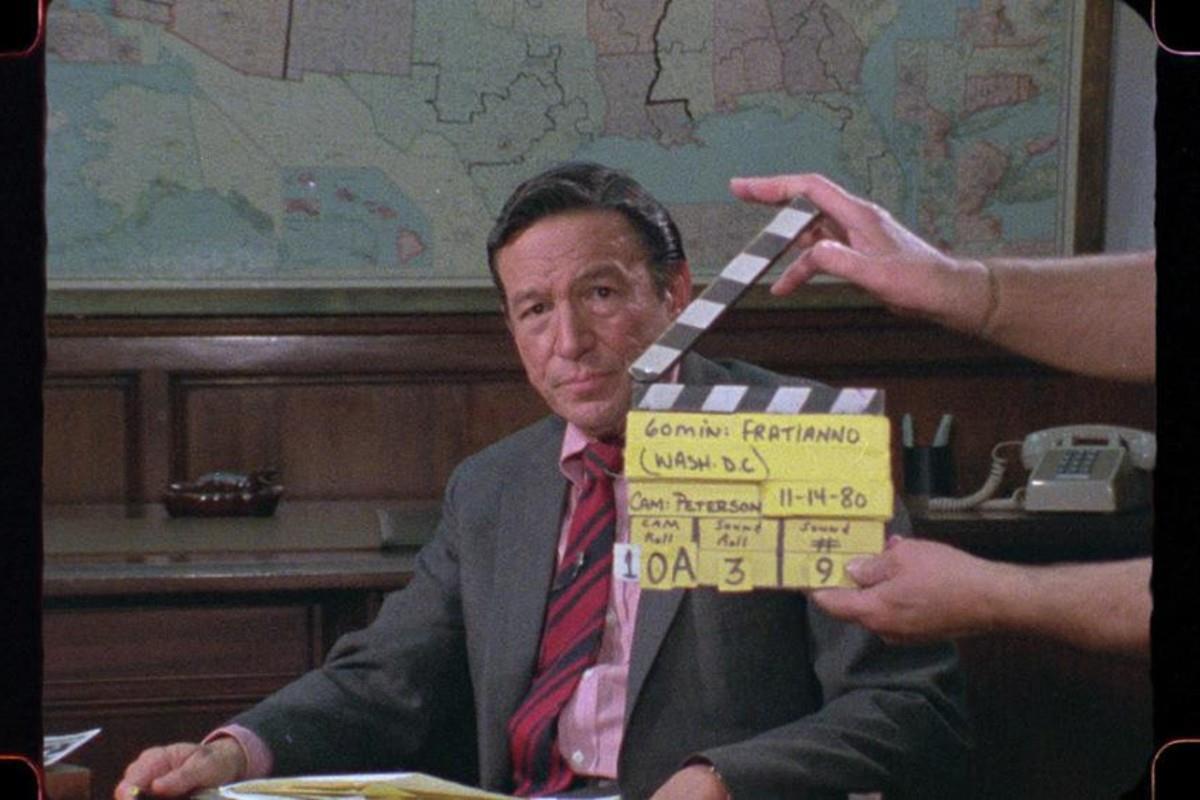The first surprise is that it throws up multiple Mike Wallaces: flickering monochrome images reveal how, in the days before his time as the grand poobah of prime-time probing, Wallace tried his hand as an actor, radio announcer and a celebrity shill for cigarettes, lipsticks and Fluffo pie crust. Belkin opens with an interview between Wallace and former Fox News blowhard Bill O'Reilly - representative of a model that's always been more showbiz than journalism - in which the latter claims the former is the reason he got into the news game, a choice snippet that prompts the intriguing thought Wallace may himself have been an actor assuming the longrunning role of journo. Certainly, several interviewees speak to the arresting dramatic qualities of the pow-wows Wallace conducted on early hits The Mike Wallace Interviews and Night Beat: how, with their low-lit sets and relentless questioning, they resembled an interrogation on some police procedural more than they did formal Q&As.
That's not to discount the evident preparation and notetaking that factored into his more rigorous interviews, or his considerable gift for improvisation - to listen, react, and try a new tack if a particular line of inquiry wasn't working. Yet these could equally be said to be the skills of a good actor, and one wonders whether assuming the onscreen persona of "Mike Wallace, Tough Prick" permitted this pock-marked boy from Brookline, Massachusetts to pose considerably tougher questions than he might have as a jobbing journo with only a byline to protect him: Belkin duly shows his subject going toe-to-toe with everyone from the KKK to Ayatollah Khomeini, Mickey Cohen to Vladimir Putin. Even when Wallace himself was being interviewed, he had a tendency to deploy rhetorical judo-throws that returned the focus to the interviewer ("How many times have I been married? Now why on earth do you want to ask that?"). If he was an actor, he was - as many actors are - forever "on".
That makes him a tough nut for any documentary to crack, particularly one dealing exclusively in footage sourced from the public domain. (The Battsek-produced Listen to Me, Marlon gained its emotional charge from its subject Marlon Brando's private recordings; nothing comparable has been made available to the filmmakers here.) Belkin provides ample, stirring illustration of Wallace's pugnacious interviewing style, but the focus of these clips remains the interviewee; the interrogator is allowed to slip away into the night, where he can lie in wait for the next worthy opponent. On those rare occasions when Wallace himself accepted an interview request, he proved open on the day-to-day details of the gig: making a name for himself in the first years of Vietnam as a non-Oxbridge educated outsider working alongside the great Ed Murrow at CBS, and the development of 60 Minutes as a successful format, something like the BBC's Panorama, but with the crowdpleasing gotcha hooks of ITV's The Cook Report, as Wallace kicked down the doors of fraudsters and child pornographers.
On his personal life, however, Wallace simply would not be drawn. Belkin shows him making so-called "Queen of Mean" Leona Helmsley break down in tears while asking about her dead son, but Wallace himself dries up when talking about the death of his own son Peter in a mountain-climbing accident in Greece in 1962. (Of his wife - or indeed wives - nothing was set on the record.) Though he proved a little more forthcoming in later life on the subject of depression, his collected TV appearances position Wallace as yet another of those patrician, emotionally remote figures who have dominated the field of TV newscasting over the last half-century - exactly someone you'd cast a Plummer (rather than the expressive-explosive Pacino) to play. Belkin knows this - and knows it enough to make a joke out of it in places. At the end of a revealing battle-of-wills with Barbra Streisand on the benefits or otherwise of sustained therapy, Wallace sighs "I feel like your father or something", to which his ever-sharp interviewee retorts with "That's good - at least you're feeling."
Broadly more characteristic would appear to be Wallace's response, amid a late-career retrospective, to any suggestion he might now retire and reflect on his achievements: "What am I going to reflect about?" The doc has a sure feel for the turbulence of the America Wallace reported on, and the celebrity he both documented and represented; Belkin works up a brisk, professional visual style, deploying splitscreens that mimic the look of a TV mixing desk. Even he, though, has to admit that he's dealing with a subject who, for all the many hundreds of hours he logged on America's screens, remains something of an invisible man, somebody who was only there when his director called action, and may just as well have disappeared when that same director called cut. That Mike Wallace is Here never quite gets behind the screen image (or persona) may finally have something to do with the fact no-one was around to pin Wallace down on camera as forcibly or effectively as Wallace himself did others.
Mike Wallace is Here is now streaming via Curzon Home Cinema.

No comments:
Post a Comment